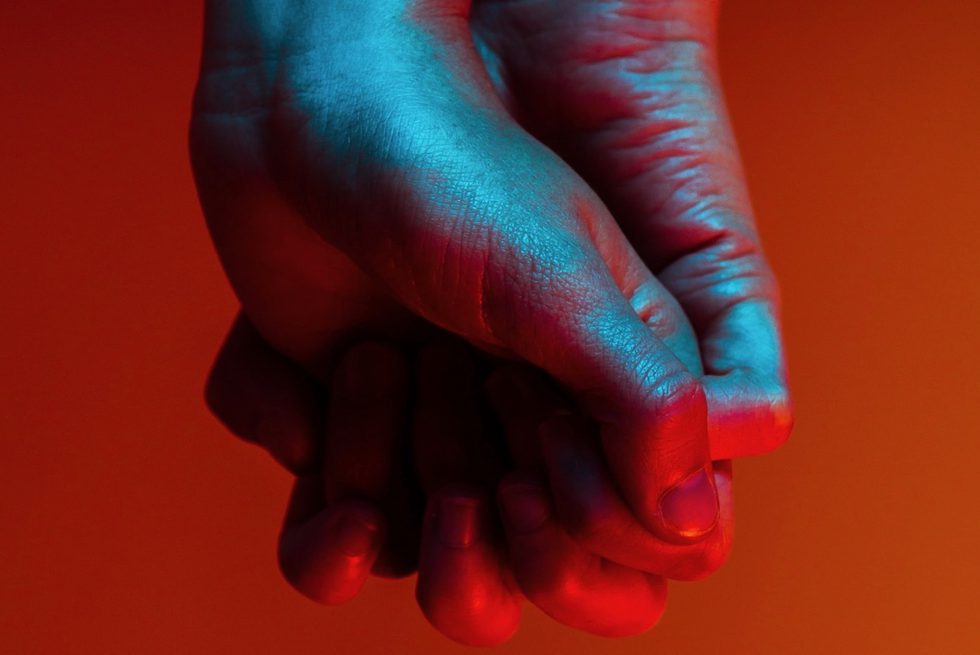Ethics: Translation
From the Series: Ethics
From the Series: Ethics

In his initial provocation, Hayder Al-Mohammad rightly suggests that we might situate ethics amid the being-with of everyday social life. He reminds us that while “the care and formation of the self is but . . . one mode of ethical being,” our “understanding of ethics and ethical life must be complicated by taking into much greater consideration the relationality, interdependency, and intercorporeality of social life” (see also Al-Mohammad 2010).
In his post, Al-Mohammad considers an ethics of being-with at a biographical scale, describing the intercorporeal entanglements of particular people in their local social worlds. I wish to translate his offering in three ways: from the local to the planetary, from the intercorporeal to the interatmospheric, and from the being-with of social life to the being-with of systemic structures. In doing so I risk moving from the descriptive to the aspirational, bordering perhaps on the invitational. A skillful oscillation between scales of analysis, modes of writing, and sites of being with is one unique contribution ethnographers can make to ethical praxis.
On the Northwest coast of Alaska, the Inupiaq community of Kivalina is already experiencing the slow violence (Nixon 2011) of global warming. Lack of sea ice has led to severe coastal erosion, decreased reliability of subsistence hunting, fishing, and whaling, and the increased likelihood of a catastrophic storm surge. (Novel ice conditions are also, for the first time, enabling offshore oil exploration in the Chukchi Sea.) The U.S. Army Corps of Engineers predicts that Kivalina, a village of four hundred persons, will become uninhabitable between 2016 and 2021. Despite the colonial undermining of socio-ecological resilience over the last hundred years, the U.S. government lacks any navigable support system for climate-affected communities in Alaska. Kivalina remains one of at least a dozen Native Alaskan villages caught in a bureaucratic and atmospheric maelstrom.
As chairman of the Kivalina Relocation Planning Committee, Enoch Adams, Jr. has spent over a decade struggling with government agencies and unaccountable contractors in search of ways to move his village to stable ground. “We get a lot of sympathy from a lot of people,” Enoch tells me, “but we need more than sympathy, we need empathy.” Kivalina’s situation is evidence of both a local impasse, but also symptomatic of the uneven development, material consumption (including carbon emissions), and environmental risks inherent within planetary capitalism. In one way or another, through the chemical composition of the atmosphere we are all entangled with Kivalina—though we may be implicated differently.
In his introduction to this series of posts, Darren Byler cites Elizabeth Povinelli’s reminder of the dangers of “liberal empathy.” In the same way, Michael Jackson (2005, 152–53) has warned against that tendency to “escape into . . . sympathetic identifications, or [even] political actions that reduce the other to a means for . . . demonstrating what a compassionate person one is, or [for] changing the world.” Like Al-Mohammed, Jackson (1998, 21–22) situates the ethics of ethnography in maintaining one’s fidelity to “the phenomenal world of immediate experience, interpersonal relations, and lived events.” What then, when such events are not confined to local worlds but widely dispersed in origin, like climate change?
In Kivalina, for example, the intercorporeal gives way to the interatmospheric, an existential intensity that draws us through description into something more. When I asked Enoch what he meant by empathy, this is what he told me:
To empathize with another you’ve got to really put yourself in their shoes for an extended period of time. Empathy is going to take time . . . it’s more than feeling sorry for someone. To really empathize with someone in our situation you really have to experience what we experience; eat our food; face our seemingly compounded dilemma. We know that there are solutions to our situation. We know that there are ways that our problem can be resolved. It’s going to take tremendous sacrifice on the part of those who don’t understand. . . . For an extended period of time, their power to realize their destiny, their future, has to be in someone else’s hands. One of the things you also realize in what we’re experiencing here, is that sometimes you come to the conclusion that these are the kinds of things you don’t wish anybody to go through. It’s kind of ironic. You wouldn’t even want your worst enemy to go through it, but it has to happen, it’s got to happen, because the only way that understanding will happen is if you experience it.
In contrast to mere sympathy, or a distant and distancing “liberal empathy,” Enoch speaks of an intimate empathy rooted in shared experience, an empathetic being-with that flows from and leads to the transformation of power relationships. In the absence of shared experience, which for Enoch would provide a ground for transformational empathy, yet given our atmospheric and other (often invisible) entanglements, what role does the anthropological project still play?
Al-Mohammad, Hayder. 2010. "Towards an Ethics of Being-With: Intertwinements of Life in Post-Invasion Basra." Ethnos 75, no. 4: 425–46.
Jackson, Michael D. 1998. Minima Ethnographica: Intersubjectivity and the Anthropological Project. Chicago: University of Chicago Press.
_____. 2005. Existential Anthropology: Events, Exigencies, and Effects. New York: Berghahn.
Nixon, Rob. 2011. Slow Violence and the Environmentalism of the Poor. Cambridge, Mass.: Harvard University Press.